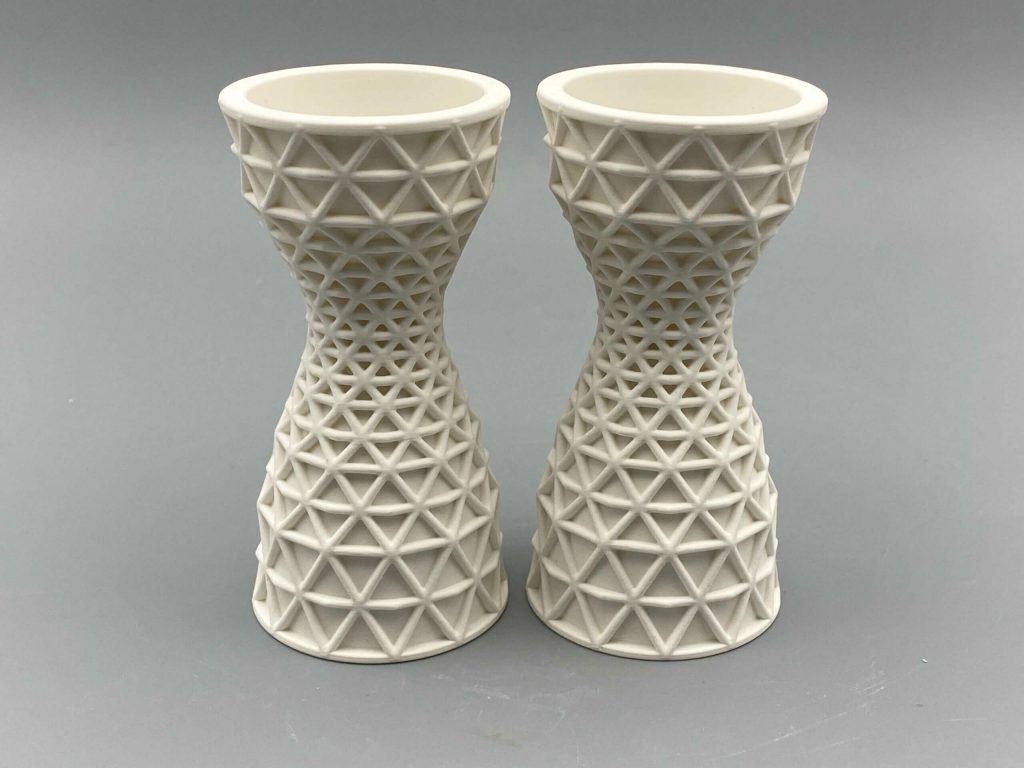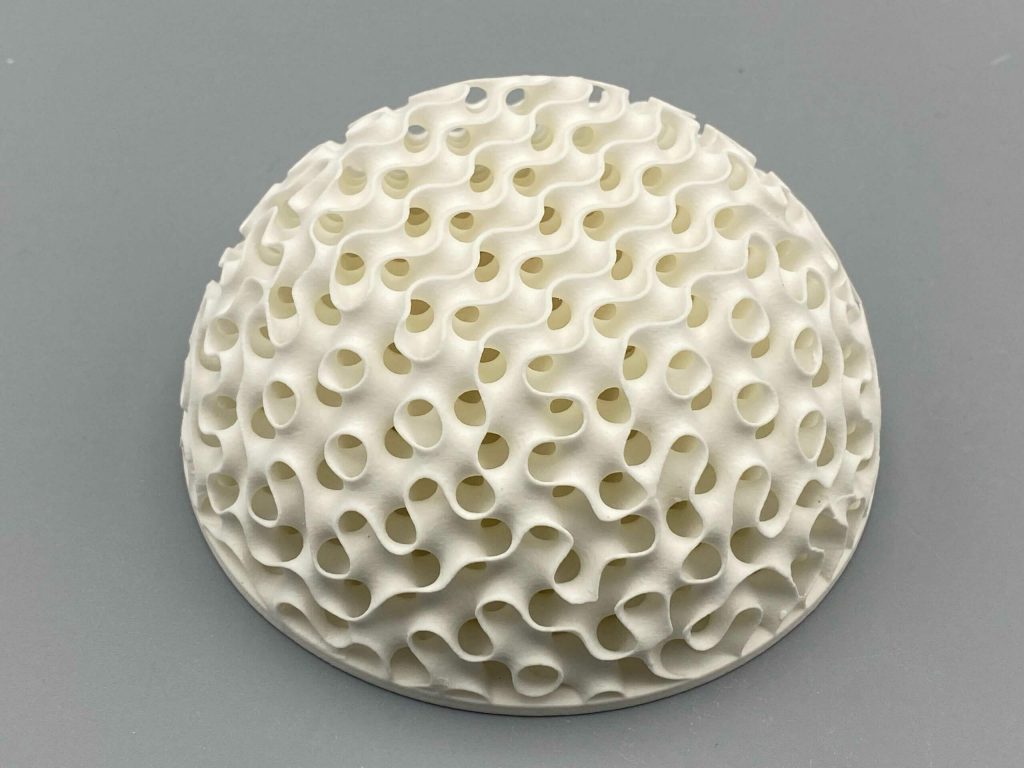Fortify, the Boston-based company behind the Digital Composite Manufacturing (DCM) 3D printing platform, has partnered with ceramic 3D printing specialist Tethon 3D to develop new technical ceramics for additive manufacturing.
Under the agreement, the firms will combine Tethon’s expertise in ceramic formulation with Fortify’s composite 3D printing technology to enable high-volume production of end-use parts. The partners will work to serve a wide variety of industrial ceramic applications, as well as several classified projects for government agencies.
Using Fortify’s FLUX CORE printer and Flux Developer software, Tethon has already developed two new ceramic materials at its R&D facility in Omaha, NE.
“Expanding our platform to the technical ceramics market is a natural evolution for Fortify,” said Joshua Martin, CEO and co-founder of Fortify. “Pushing the envelope with these materials requires the processing of highly-loaded, abrasive, and viscous materials. These are the same capabilities that drive our success across various technical photopolymers.”

The market for technical ceramics
Both Fortify and Tethon expect a new long-term period of growth in the market for technical ceramics, with the compounded annual growth rate (CAGR) from 2021-2027 predicted to reach 33%. Fortify, in particular, is looking to accelerate the transition from conventional ceramic manufacturing methods (an $8B market) to additive manufacturing.
Technical ceramics themselves have a wide variety of advanced applications, including extreme temperature parts, highly wear-resistant components, and chemical contacting devices. Unfortunately, limitations in manufacturing processes have historically inhibited their growth as a sector but with 3D printing now on the rise, complex geometries can be fabricated with ease. The partners expect this to play a key role in accelerating the adoption of technical ceramics.
“We are excited to partner with Fortify as the ceramics market grows,” explains Trent Allen, CEO of Tethon 3D. “We have clear demand from our customer base for more production-oriented solutions. Fortify Flux printers are a natural complement to our Bison 1000 DLP printer customers as they look to scale their operations.”
Fortify HP-A 99.8 and LS-AS
Having installed a FLUX CORE printer at its Omaha facility in mid-June, Tethon 3D has developed two new materials which are set to be showcased at the RAPID + TCT event in Chicago this month. Fortify High Purity Alumina (HP-A 99.8) and Low Shrink Aluminum Silicate (LS-AS) reportedly offer the lowest shrinkage rates of any comparable materials on the market.
HP-A 99.8 is an alumina-filled photoresin that sinters with only 12% shrinkage. It’s been specially developed for applications that require dielectric strength, corrosion resistance, thermal conductivity, and hardness. LS-AS, on the other hand, is a general-use ceramic with an exceptionally low shrinkage of 5%.
“Working with Fortify to drive new material formulations has been a pleasure,” concluded Greg Pugh, CTO at Tethon 3D. “The overall robustness of the FLUX CORE system and the capabilities of Flux Developer to quickly validate multiple variables simultaneously has really shortened our lead time on new materials. The key demands from our customers are higher purity materials, low shrink rates, and faster processing through print and sintering. The Fortify partnership advances our technology on each of these metrics.”

Just last month, 3D printer manufacturer 3D Systems qualified two new 3D printing alloys for use with the company’s DMP technology. ‘Certified Scalmalloy’ is a durable aluminum that ‘bridges the gap’ between traditionally-cast alloys like AlSi10Mg and Ti Gr23, while ‘Certified M789’ is a cobalt-free alloy with excellent hardness. The materials are expected to see extensive use in the automotive and aerospace sectors.
Elsewhere, UK-based 3D printing filament developer Filamentive recently announced the launch of its new PLA Tough material. Marketed as an industrial-grade offering, PLA Tough is designed to combine the impact strength of ABS with the ease-of-printability and environmental benefits of PLA.
Subscribe to the 3D Printing Industry newsletter for the latest news in additive manufacturing. You can also stay connected by following us on Twitter, liking us on Facebook, and tuning into the 3D Printing Industry YouTube Channel.
Looking for a career in additive manufacturing? Visit 3D Printing Jobs for a selection of roles in the industry.
Featured image shows a 3D printed ceramic rocket nozzle printed on the FLUX CORE with Low Shrink Aluminum Silicate (LS-AS) resin. Photo via Fortify.



